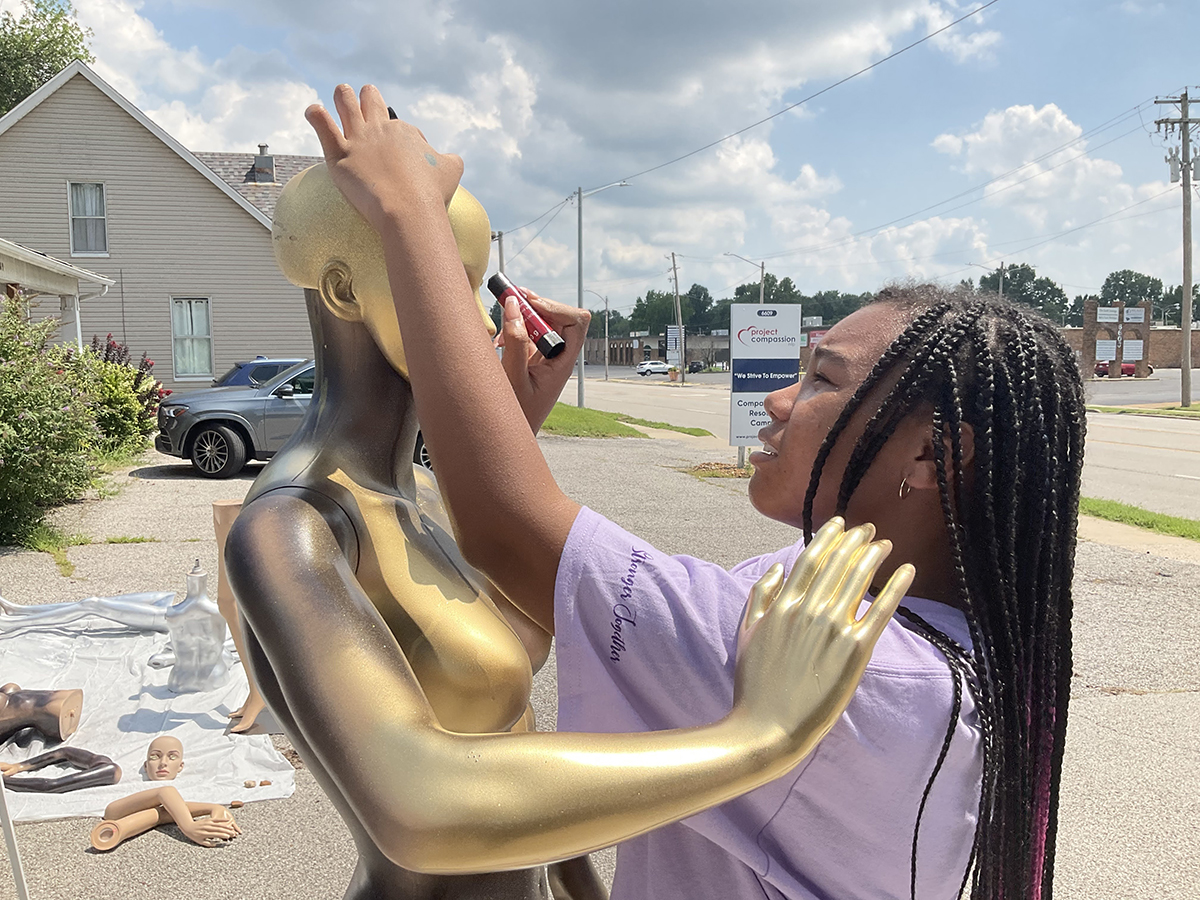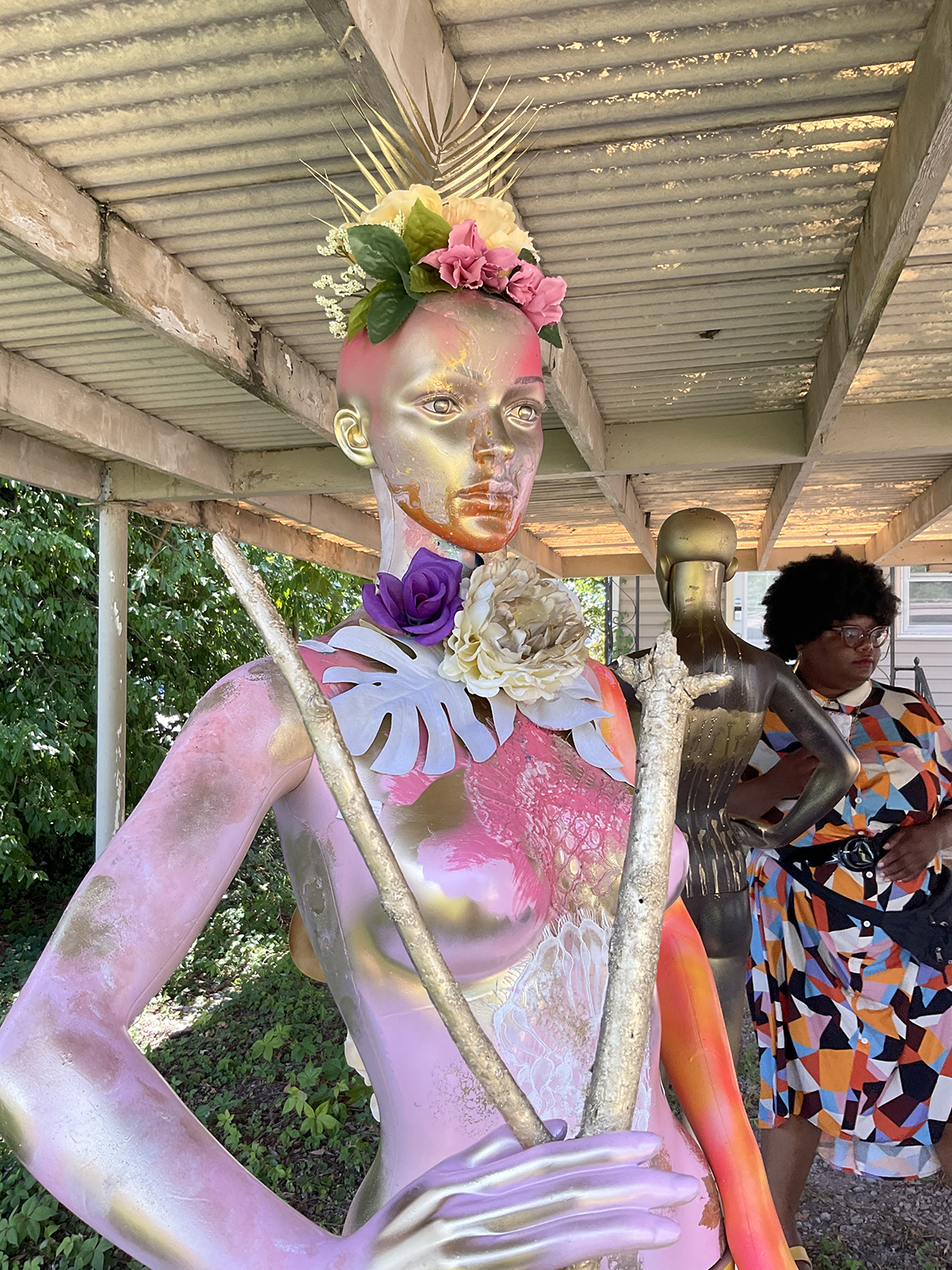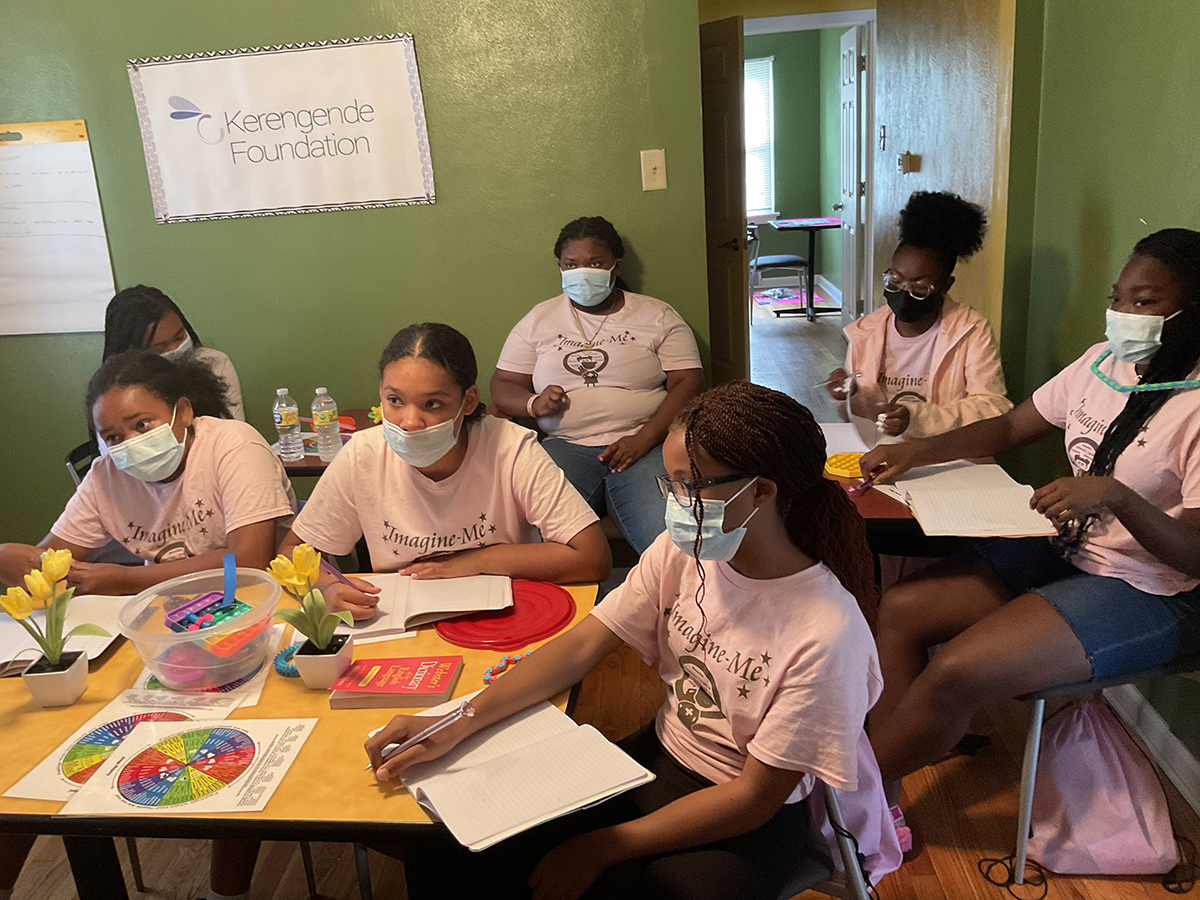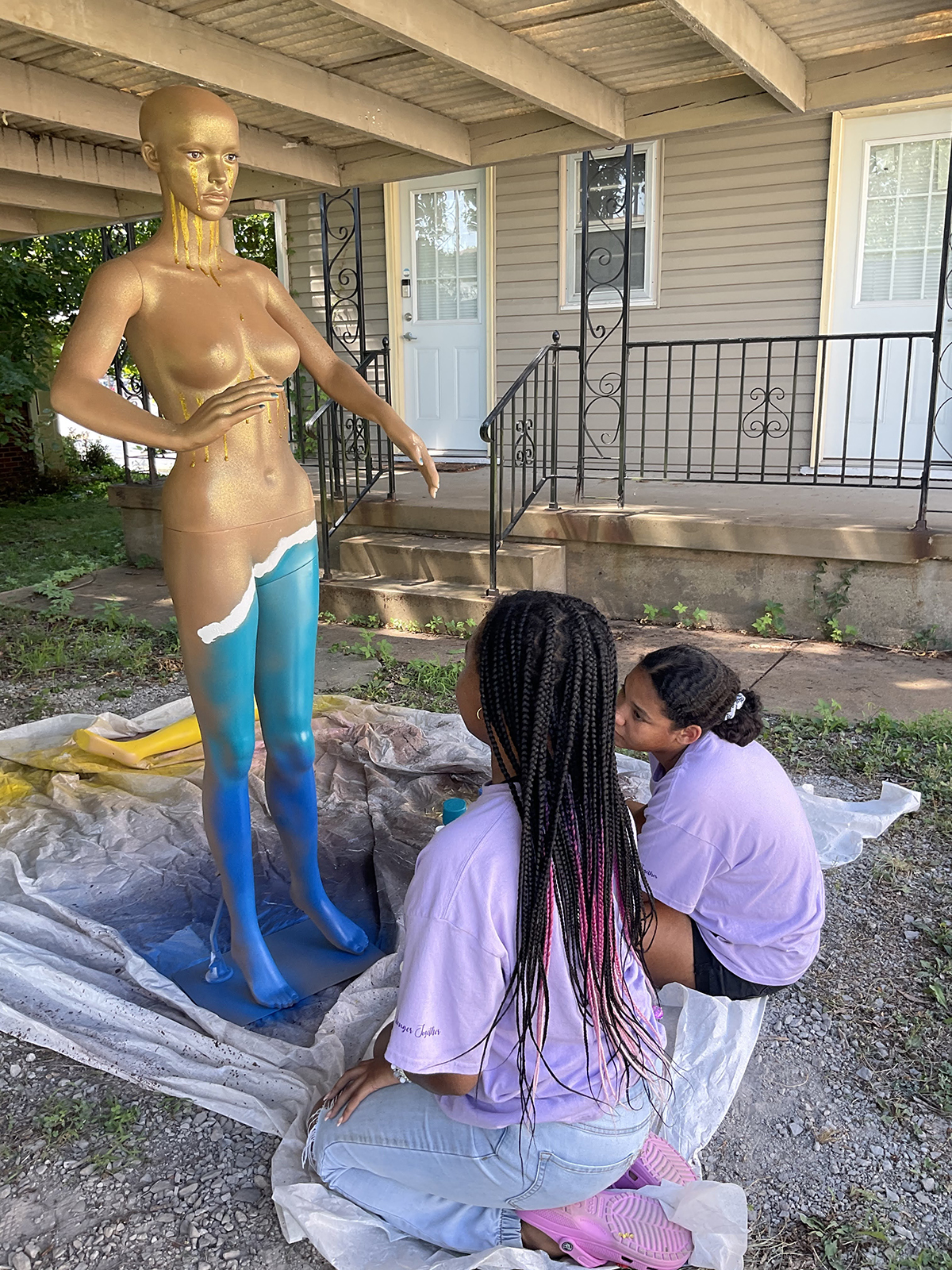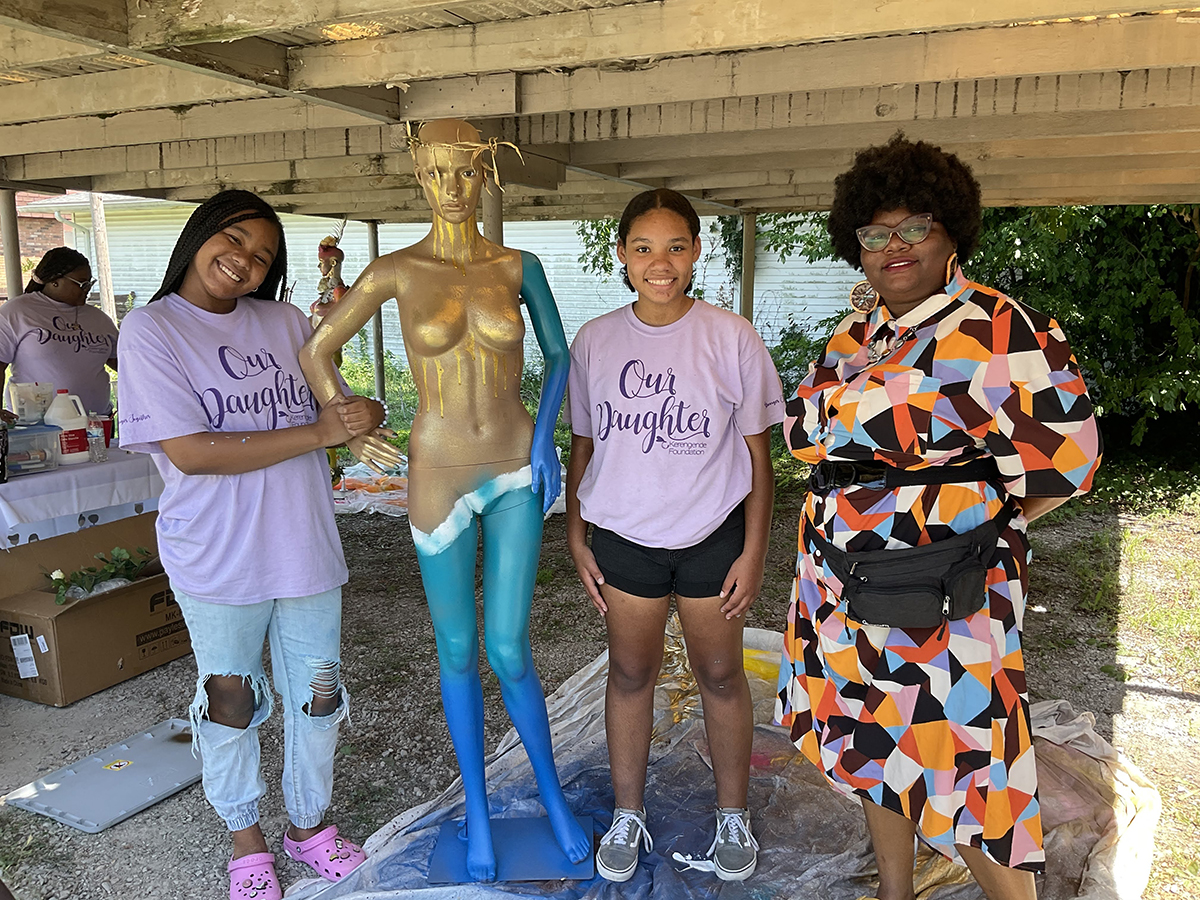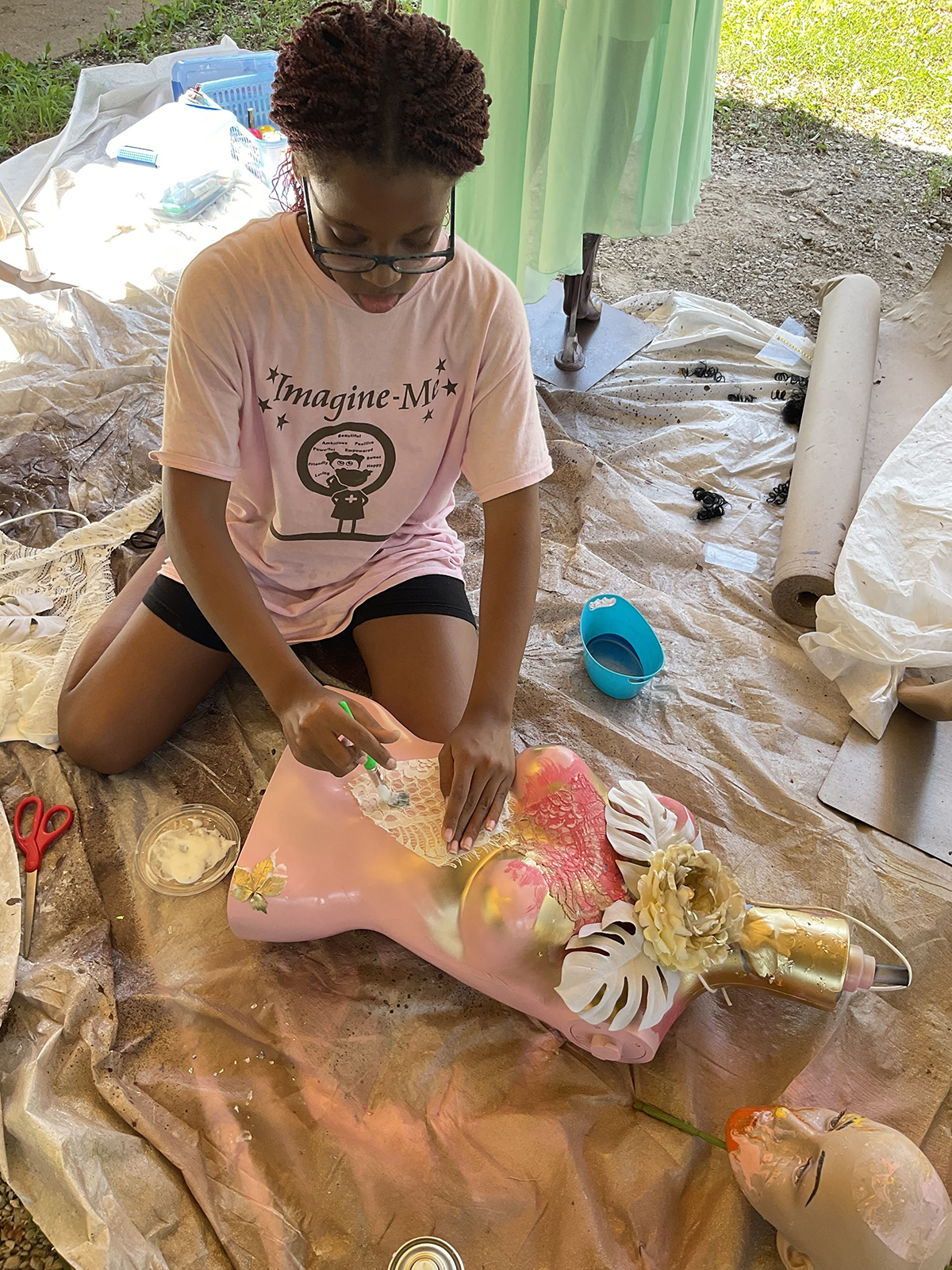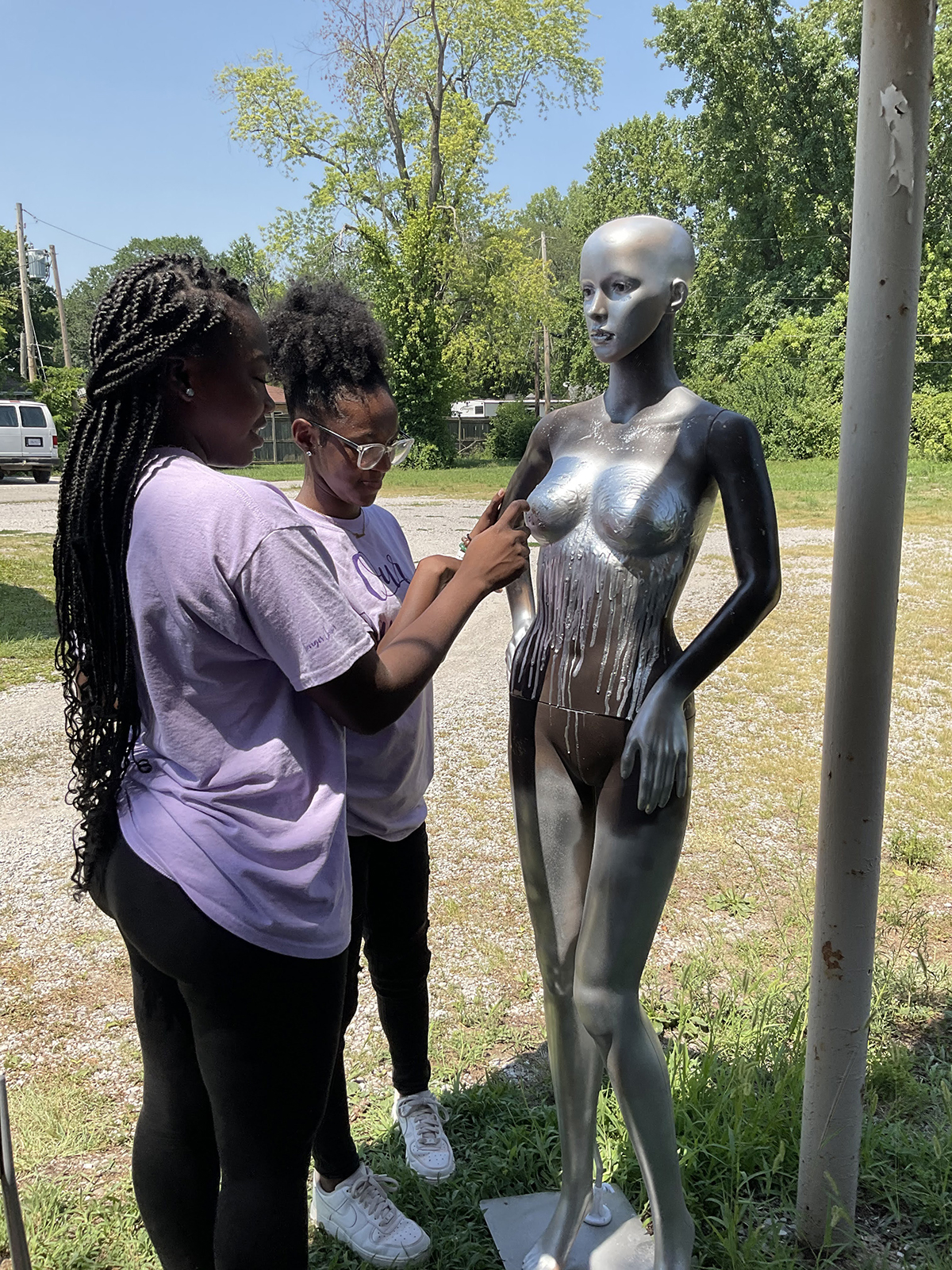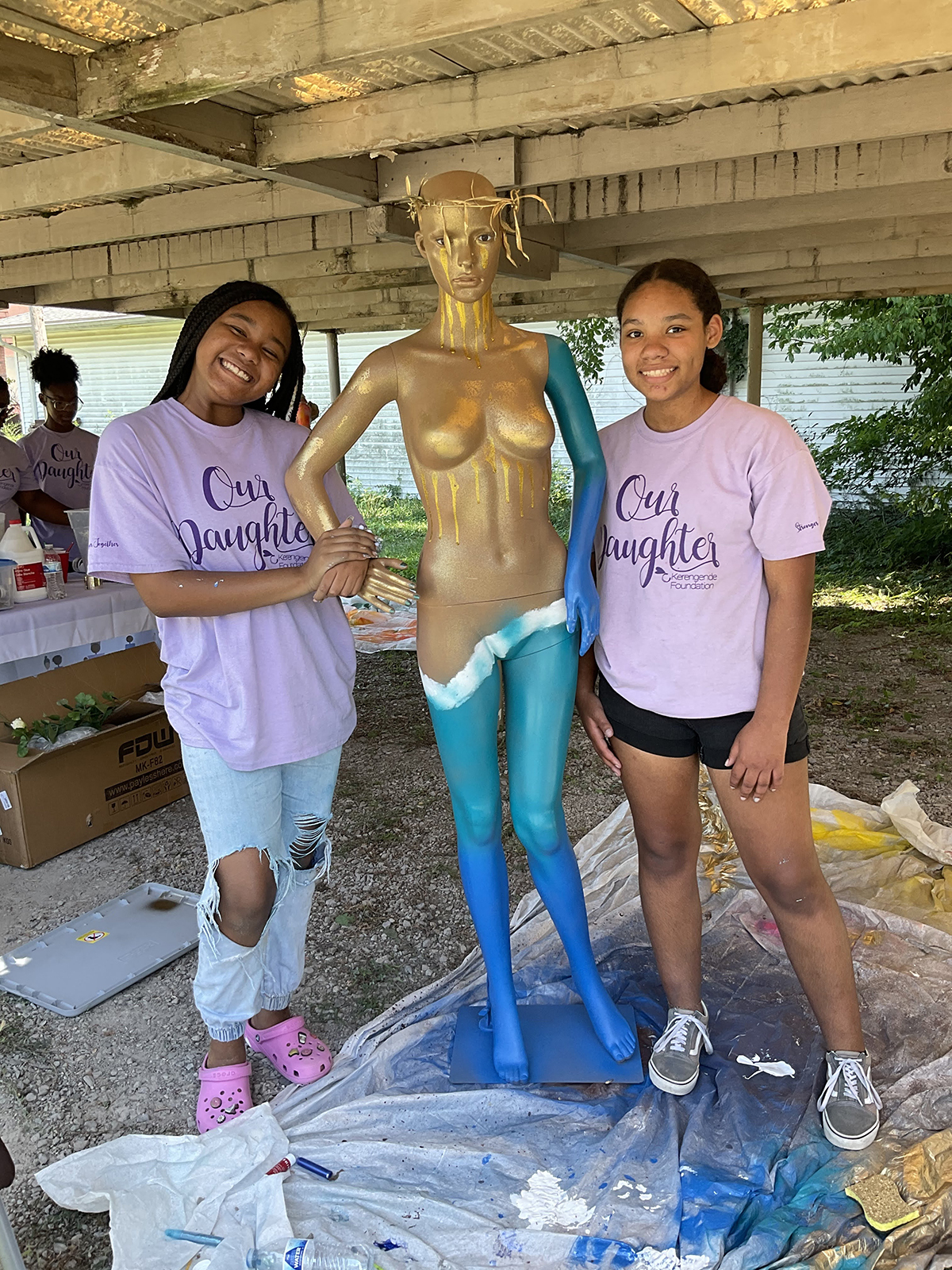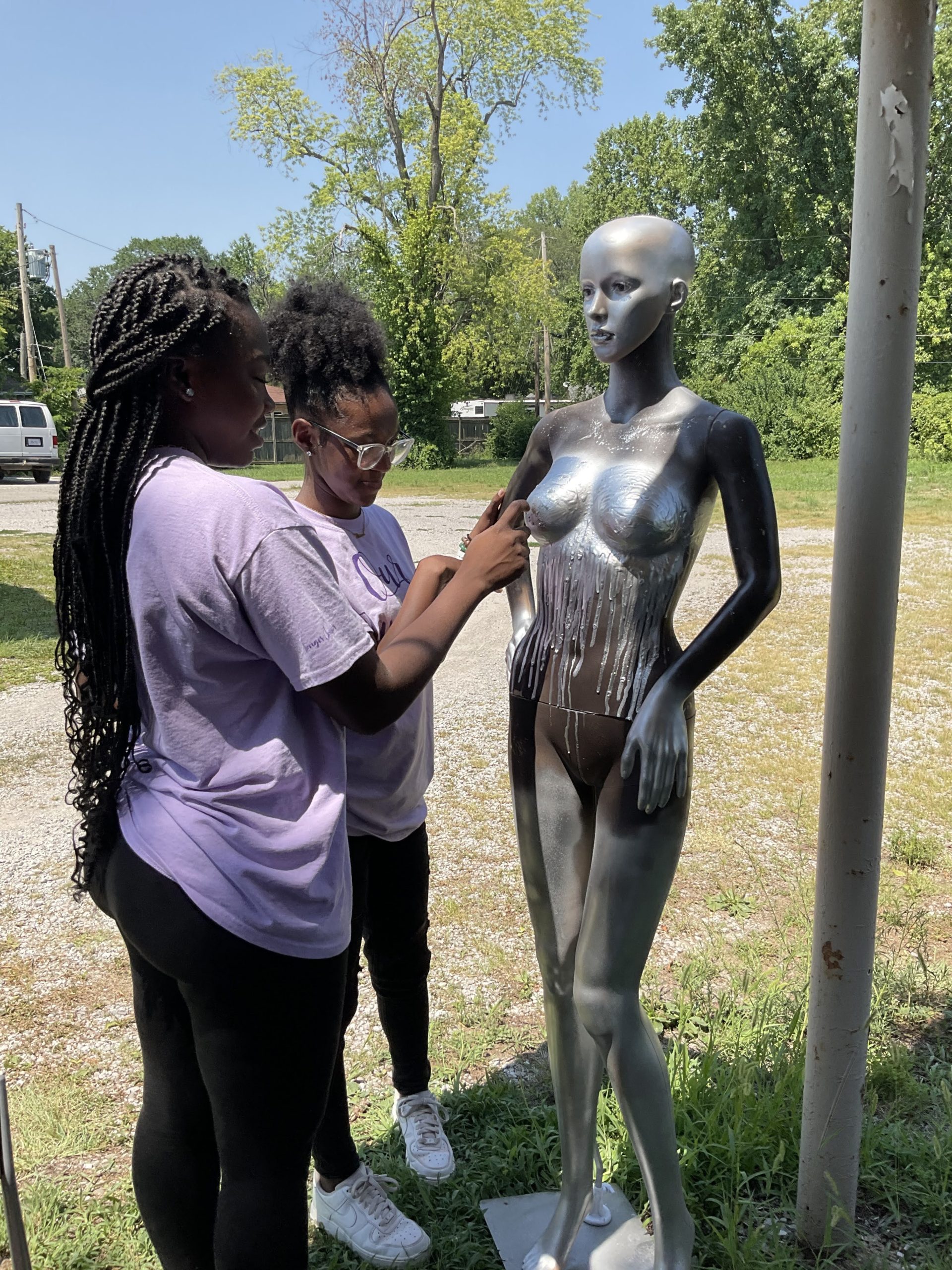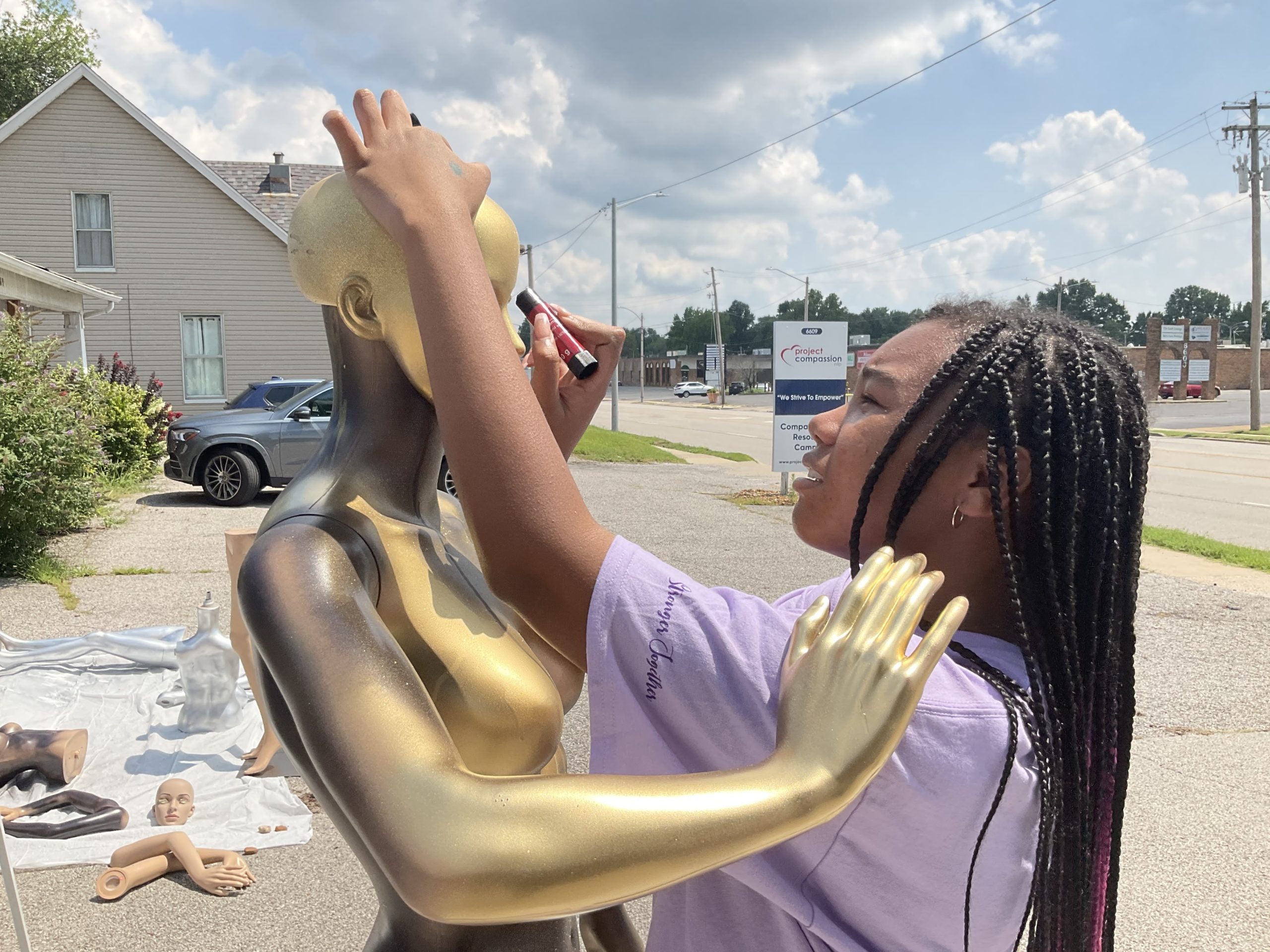From July 18 to July 20, 2022, Kerengende partnered with Project Compassion, based out of Belleville, Illinois to provide a three-day youth workshop focused on the prevention of sexual exploitation. This collaborative event introduced female-identified youth to the concepts of consent, coercion, and boundaries through daily dialogue and a culminating hands-on art project. Led by a licensed art therapist from Southern Illinois University-Edwardsville (SIUE), the interactive art project invited girls to create a “canvas of self” with the decoration of mannequins. Below, you will find a full first-person report of my observations, my instruction, and my interactions as the Kerengende founder and adult facilitator of this event.
Given the risk factors of poverty and today’s ever-increasing online exposure, young people are arguably even more vulnerable to sexual exploitation on and offline. Especially in low-income areas like East St. Louis, this problem of sexual abuse is further compounded by under-reporting, which could be the result of many factors from lack of information, miseducation, and or the stigmatization of survivors and targets of sexual abuse. As a step toward prevention and intervention, this workshop focused on giving youth and their families the information, the resources, and the decision-making tools to self-advocate and or navigate life after abuse.
Project Compassion served as the ideal partner for this particular event, for this organization shares similar values and provides relevant family-support services to similar vulnerable populations–that being unhoused women and their families. Specifically, this organization has strong ties to the local communities due to its implementation of violence prevention programs in local high schools. Kerengende was able to gain access to youth because of Project Compassion’s influence, credibility, and presence in the local communities. Due to a shared mission, there was a natural opportunity for Kerengende to offer its Stronger Together programming to complement Project Compassion’s Imagine Me summer camp. Lastly, the licensed art therapist came as a result of a contract between Kerengende and the Call for Help Rape Crisis Center.
This event ran for three consecutive days from the morning to the afternoon. Each day featured a series of short lessons, open conversations, and community-building activities. Parents were given resources and study material the first day while the group of no more than ten girls participated under the supervision and guidance of primarily two adults–Kerengende Founder, Amber Clayborne, and therapist Chelsea Mayo, also one of Kerengende’s family advocates. The summer camp was primarily interactive, discussion-based, and student-centered, so the content and its delivery were tailored to be age-appropriate for teenagers and inclusive of different learning styles and modalities. The summer camp embodied the concept of “consent,” giving the girls the voice and choice to determine the ways in which they wanted to engage with the material and the group. Community norms were given, appended, and agreed upon among the group in order to keep the space safe and collaborative.
This seminar-style workshop provided both adults and youth the opportunity to share and care intimately, vulnerably, and compassionately. Such sensitive topics were best unpacked through daily open-ended discussion infused with some formal presentations. To create a tight-knit sense of community, the decision was made to keep the number of girls to no more than ten. To have adult facilitators with similar ethnic backgrounds and shared experiences made the entire experience culturally safe, responsive, and revelatory for the girls. The girls spoke freely and candidly about certain personal experiences without feeling self-conscious or misunderstood.
The culminating project of decorating mannequins allowed girls to be hands-on, creative, and supportive of one another. In addition to empowering the girls with key information and decision-making skills, the summer camp also organically fostered strong interpersonal skills such as teamwork, empathy, and communication.
Grateful for any and all funding and support, Kerengende continues to look for both local and national organizations with similar missions, significant community contact and engagement, and relevant resources, supplemental to the services offered by Kerengende.

